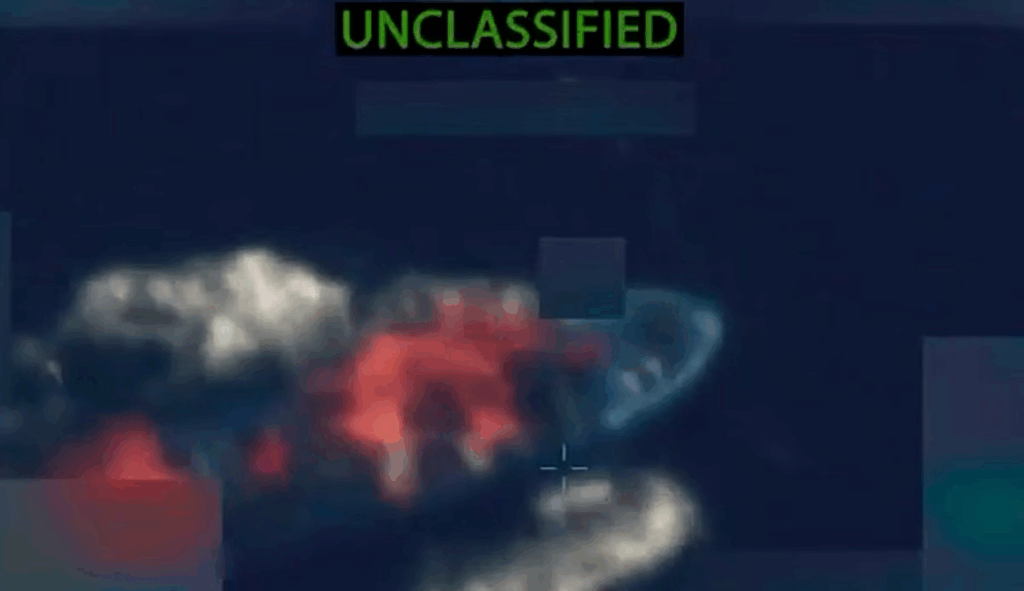Military raids on alleged drug boats off Haiti and Venezuela reignite debates on U.S. drug war failures, regional sovereignty, and legalization alternatives.
As U.S. missiles fell on boats in the Caribbean in recent weeks, officials framed the strikes as a bold move against fentanyl traffickers threatening American lives.
Yet documents and reports from the Washington Post, UNODC, and AP News suggest a different reality—one that exposes the limits, contradictions, and potential ulterior motives of the so-called war on drugs.
The attacks, ordered under Executive Order 14157, classified Latin American cartels as terrorist organizations. This unprecedented reclassification granted the U.S. military wide latitude to conduct operations across the region with minimal congressional oversight.
Between July and September 2025, at least ten vessels were hit in raids near Haiti and Venezuela, with an estimated forty-three people killed. Washington claimed the targets were trafficking fentanyl into the United States.
The problem? UN data shows that nearly all fentanyl entering the U.S. comes through Mexico, not the Caribbean.

Contradictory Cargo and Questionable Motives
Further complicating the official narrative, the Washington Post and Caribbean Journal found that several targeted boats were carrying marijuana and cocaine bound for Europe and Africa—not fentanyl for U.S. markets.
This contradiction fuels speculation that the strikes had less to do with narcotics interdiction and more to do with regional power politics. The campaign’s blurred lines evoke a long history of U.S. interventions justified by the language of security, from anti-communism in the Cold War to today’s anti-cartel crusades.
Expanding the Definition of Terror
Legal scholars note that Executive Order 14157’s “terrorist” designation for cartels represents a major legal leap. The Harvard Law Review warned in 2022 that such labeling risks eroding boundaries between military and law enforcement authority, opening the door to extrajudicial action abroad.
Human Rights Watch echoed these concerns, emphasizing that civilian deaths in prior anti-drug operations often go unverified and unaccounted for. In this case, neither the Pentagon nor Caribbean governments have released casualty reports or evidence confirming who died—or why.
Caribbean Silence and Sovereignty
The silence from the region speaks volumes. According to Caribbean Journal and Dominican Today, neither Haiti nor the Dominican Republic issued formal protests over the incursions. Analysts suggest fear of retaliation, limited diplomatic leverage, or simple resignation to U.S. dominance may explain the quiet.
For affected communities, that silence translates into invisibility. Deaths at sea become data points in someone else’s narrative.
Venezuela and the Shadow of Regime Change
Meanwhile, Trump’s former aides have framed the strikes as a “decisive blow” against transnational crime. Yet reports from AP News and The Intercept indicate that the operations coincided with an expanded CIA presence in Venezuela and the deployment of an aircraft carrier group near Caracas.
For foreign policy experts, this context hints at deeper motives—an attempt to destabilize President Nicolás Maduro’s government under the cover of counternarcotics enforcement. It’s a familiar playbook: cloak regime change in the language of moral policing.
Cold War Echoes and Modern Justifications
The echoes of the Cold War reverberate through these actions. The same anti-communist playbook that once justified coups and proxy wars now resurfaces in anti-cartel rhetoric. In the mid-twentieth century, the U.S. often framed its interventions as defenses against ideological enemies; today, the justification has shifted to narcotics and security. The logic remains the same: expand influence, project power, and define morality through force.
The “war on fentanyl” repackages those same justifications with a new villain—the narco-state. What hasn’t changed is who pays the price—the people on the ground.
Legalization as an Alternative
Even within the United States, this approach is losing credibility. The Brookings Institution and Institute for Policy Studies both argue that militarized drug control has failed to reduce supply or addiction. Instead, it props up cartels by limiting competition and inflating profits. Legalization, they contend, offers a more rational path: regulate production, redirect police toward human trafficking and violent crime, and fund treatment through tax revenue.
Lessons from Portugal and Cannabis Markets
Portugal’s experience underscores that argument. Since decriminalizing all drugs in 2001, the country has seen overdose deaths plummet and treatment participation soar, according to The Guardian. In the U.S., legal cannabis markets have similarly shrunk illicit activity while creating taxable industries. These models suggest that what the Caribbean needs is not another strike group, but another approach.
Beyond Legalization: Addressing Root Causes
Still, reform advocates caution against utopian thinking. Legalization will not, on its own, dismantle structural inequalities or end exploitation within global drug economies. As Al Jazeera and UNODC data show, poverty and political instability drive production and smuggling as much as prohibition does. Without addressing those root causes, legalization risks reproducing the same inequities under a new banner.
The End of a Failed War?
Yet the alternative—perpetual war—seems increasingly untenable. After fifty years and trillions of dollars, the U.S. drug war has neither ended addiction nor neutralized organized crime. Instead, it has exported violence to Latin America and the Caribbean, undermined local sovereignty, and blurred the line between defense and aggression.
In this latest Caribbean episode, the moral logic of the drug war collapses under its own contradictions. Missiles launched in the name of public health strike boats carrying the very substances already legal in parts of the U.S. The policy that claims to defend life instead fuels cycles of death. Whether through hubris or design, the result remains the same: chaos for profit, control disguised as compassion.
The question now is whether policymakers—and the public—are finally ready to confront the truth. As calls for full-scale drug legalization gain traction, the Caribbean strikes may come to symbolize more than another foreign policy failure. They may mark the beginning of the end of a century-long fiction: that we can bomb our way to sobriety.

***
Trap Culture is the ultimate destination for cannabis enthusiasts who want to experience the best of Arizona’s cannabis culture. Whether you are looking for the hottest cannabis-friendly events, the latest news on cannabis legalization, trends in the industry and exclusive, limited-edition products from the top brands in the market, Trap Culture has you covered. Visit our website to learn more about our events, our blog, and our store. Follow us on social media to stay updated on the latest news and promotions. Join the Trap Culture family and experience the most immersive and engaging social cannabis events in Arizona.
Follow us on social media




